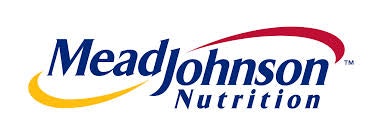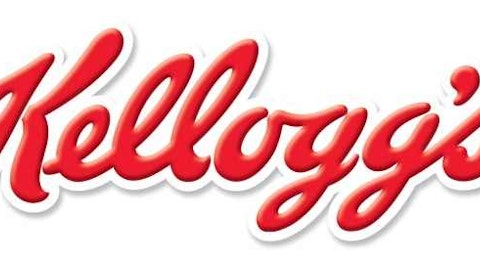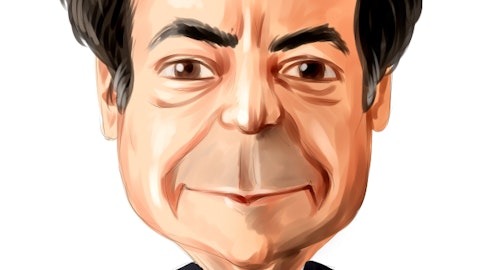Mead Johnson Nutrition CO (NYSE:MJN)‘s shares have slumped by over 2.0% today as the $17.14 billion infant formula maker cut its forecast for its 2015 sales and profits, citing a slowdown in the Chinese economy (the Chinese government would disagree with Mead Johnson’s assertion, as it has claimed 7% growth for the Chinese economy in the second quarter, as it had targeted). The world’s second-largest economy was responsible for 31% of the company’s sales last year compared to 24% from the U.S. While the sales growth forecast for the current fiscal year was cut to 2% from the 7% guidance provided in April, the EPS range was lowered to between $3.63 and $3.78 from the earlier indications of $3.90 to $4.00. Mead Johnson Nutrition CO (NYSE:MJN)’s stock reached a new 52-week low today on the disappointing news, but has since rebounded slightly.

While a number of hedge funds pulled out of Mead Johnson Nutrition CO (NYSE:MJN) during the first quarter, the aggregate holdings of the funds increased rather substantially during a flat quarter for the stock. A total of 38 funds had about $1.12 billion in shares of the company at the end of the first trimester, as opposed to 42 firms with $883.69 million at the end of the previous quarter.
First a quick word on why we track hedge fund activity. In 2014, equity hedge funds returned just 1.4%. In 2013, that figure was 11.3%, and in 2012, they returned just 4.8%. These are embarrassingly low figures compared to the S&P 500 ETF (SPY)’s 13.5% gain in 2014, 32.3% gain in 2013, and 16% gain in 2012. Does this mean that hedge fund managers are dumber than a bucket of rocks when it comes to picking stocks? The answer is definitely no. Our small-cap hedge fund strategy, which identifies the best small-cap stock picks of the best hedge fund managers returned 28.2% in 2014, 53.2% in 2013, and 33.3% in 2012, outperforming the market each year (it’s outperforming it so far in 2015 too). What’s the reason for this discrepancy you may ask? The reason is simple: size. Hedge funds have gotten so large, they have to allocate the majority of their money into large-cap liquid stocks that are more efficiently priced. They are like mutual funds now. Consider Ray Dalio’s Bridgewater Associates, the largest in the industry with about $165 billion in AUM. It can’t allocate too much money into a small-cap stock as merely obtaining 2% exposure would really move the price. In fact, Dalio can’t even obtain 2% exposure to many small-cap stocks, even if he essentially owned the entire company, as they’re simply too small (or rather, his fund is too big). This is where we come in. Our research has shown that it is actually hedge funds’ small-cap picks that are their best performing ones and we have consistently identified the best picks of the best managers, returning over 139% since the launch of our small-cap strategy compared to less than 59% for the S&P 500 (see the details).
As far as insider trading surrounding Mead Johnson Nutrition CO (NYSE:MJN) is concerned, James Cornelius, who is one of the Directors of the company, purchased 10,000 shares this year, while Stephen Golsby, another Director disposed of 20,000 shares during the same period. It should be noted that insider purchases are a much stronger signal than insider selling.
Let’s dig deeper into the key hedgieaction encompassing Mead Johnson Nutrition CO (NYSE:MJN).
How are hedge funds trading Mead Johnson Nutrition CO (NYSE:MJN)?
When looking at the hedgies followed by Insider Monkey, York Capital Management, managed by James Dinan, holds the most valuable position in Mead Johnson Nutrition CO (NYSE:MJN) as of March 31. York Capital Management has a $245.1 million position in the stock, comprising 1.7% of its 13F portfolio. The second-largest stake is held by Citadel Investment Group, led by Ken Griffin, holding a $146.9 million position; the fund has 0.2% of its 13F portfolio invested in the stock. Supporting members of the smart money that hold long positions include James Crichton’s Hitchwood Capital Management, Jim Simons‘ Renaissance Technologies, and Steve Cohen’s Point72 Asset Management.
Because Mead Johnson Nutrition CO (NYSE:MJN) has faced a declination in interest from hedge fund managers, we can see that there were a few money managers that decided to sell off their positions entirely in the first quarter. It’s worth mentioning that J Kevin Kenny Jr’s Emerging Sovereign Group dumped the biggest investment of all the hedgies tracked by Insider Monkey, valued at close to $108 million in stock. Tony Chedraoui of Tyrus Capital was right behind this move, as the fund cut about $16.8 million worth. These transactions are important to note, as aggregate hedge fund interest fell by four funds in the first quarter.
We would advise investors to stay clear of the stock owing to macroeconomic weakness in China (even if the Chinese government isn’t admitting to it) and lower overall hedge fund sentiment pertaining to the company, although some were very bullish.
Disclosure: None





